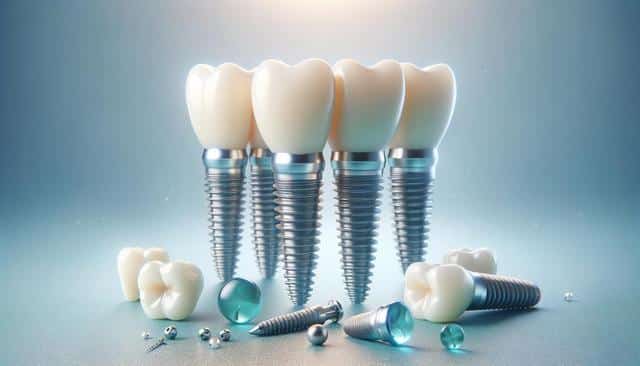Understanding Dental Implants
Dental implants have revolutionized the field of dentistry, offering a sturdy and lasting solution for individuals with missing teeth. Unlike traditional dentures or bridges, implants are firmly anchored into the jawbone, replicating the root of a natural tooth. This integration not only provides stability but also helps maintain the integrity of the surrounding bone structure. Dental implants are typically made from biocompatible materials, ensuring they are well-tolerated by the body and can last for many years with proper care.
The Process of Getting Dental Implants
The journey to achieving a confident smile with dental implants involves several steps. Initially, a comprehensive dental examination is conducted to assess the condition of the jawbone and overall oral health. This is followed by a surgical procedure where the implant is placed into the jawbone. As the site heals, the implant fuses with the bone through a process called osseointegration. Once fully integrated, a custom-made dental crown is attached to the implant, completing the restoration. This process, although lengthy, ensures a robust and natural-looking result.
Benefits of Dental Implants
Dental implants offer numerous advantages that make them a popular choice for tooth replacement. Here are some key benefits:
- Improved Appearance: Implants look and feel like natural teeth, enhancing facial aesthetics.
- Enhanced Comfort: As they are permanently fixed, implants eliminate the discomfort of removable dentures.
- Better Oral Health: Implants do not require altering adjacent teeth, preserving natural tooth structure.
- Durability: With proper care, implants can last a lifetime, making them a cost-effective solution.
- Improved Speech: Unlike dentures, implants eliminate the risk of slippage, allowing for clearer speech.
Maintaining Your Dental Implants
Proper care and maintenance are crucial to the longevity of dental implants. Regular dental check-ups and good oral hygiene practices are essential. Brushing twice daily, flossing, and using an antimicrobial mouthwash help keep the implants and surrounding gums healthy. Additionally, avoiding habits such as smoking and excessive intake of sugary foods can prevent complications and enhance the lifespan of the implants.
Are Dental Implants Right for You?
Deciding if dental implants are suitable involves considering several factors, including your oral health, bone density, and lifestyle habits. A consultation with a dental professional can provide insights into whether you are a candidate for implants. They can assess your specific needs and discuss alternative treatment options if necessary. Ultimately, the decision to pursue dental implants should be based on a thorough understanding of the procedure and its potential benefits.
Conclusion
Dental implants present a remarkable opportunity to improve oral health and enhance confidence through a natural-looking smile. Their durability and aesthetic appeal make them an excellent choice for those seeking a long-term solution to tooth loss. By consulting with a dental professional and following appropriate care practices, individuals can enjoy the many benefits that dental implants offer, leading to a more confident and fulfilling life.
